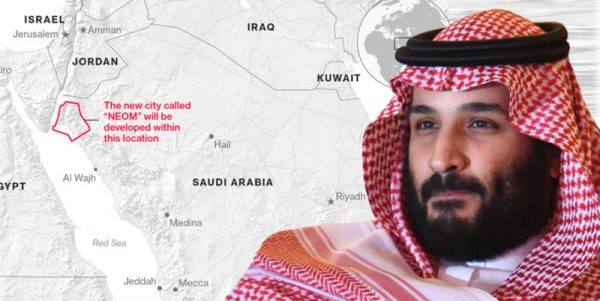
By Calvert W. Jones
Saudi Arabia’s powerful crown prince, Mohammed bin Salman, isn’t just consolidating power before his probable ascent to the throne. He’s also trying to remake Saudi society. He bluntly told reporters that his country is “not normal.” And so, like Ataturk in post-World War I Turkey, the shah in pre-revolutionary Iran and other authoritarian movers and shakers, he’s going to modernize his society — and fast.
McKinsey’s consultants helped design Vision 2030 , the prince’s sweeping reform agenda aimed at ushering Saudi Arabia into a more open, post-petroleum future. Reforms underway emphasize a vibrant private sector, a smaller bureaucracy, curbs on the power of the Wahhabi religious establishment and even the reopening of shuttered cinemas. The crown prince has vowed to restore a more “moderate Islam.” No wonder the international community, despite some lingering unease about Mohammed’s power grab and disillusionment with his disastrous war in Yemen, generally applauds all this social engineering. Thomas Friedman called it “Saudi Arabia’s Arab Spring, at last.”
But social engineering is a tricky business, and the outcomes are uncertain. Ataturk succeeded in his equally dramatic efforts to remake Turkey along avowedly Western lines. In Iran, on the other hand, the shah’s decadence and modernizing failures triggered a radical backlash that culminated in the Islamic revolution. As it happens, something very similar to the prince’s project has already been tried — next door, in the United Arab Emirates (UAE). What leaders there learned was that a top-down social revolution can’t work by fiat; it requires a profound investment in the people it expects to change.
The problem is that authoritarian modernizers cannot simply command a new attitude among their citizens. Opening cinemas and relaxing gender segregation may impress Saudi youth, but a new economy requires far more. Reformers in the UAE eventually realized — as Saudi rulers will discover, too — that they needed to adapt both the mind-sets and the skill sets of the rising generation. In countries where people see a government job as a right, that means reshaping the very nature of citizenship.
Is this deeper process of building globalization-ready citizens working? To find out, I surveyed more than 2,000 Emirati youth, comparing incoming and outgoing cohorts in regular public schools — i.e., the old system — with incoming and outgoing cohorts in public schools that have implemented the new program. This methodology, called “difference in differences,” is useful because it helps to isolate the effects of social engineering from other forces such as income disparities or maturation. I also interviewed hundreds of ruling elites, education reformers, parents, students, school administrators and teachers, and conducted several focus groups in the schools (in Arabic or English, as students sometimes preferred).
My research yielded several important insights. First, social engineering is better at changing civic attitudes than economic ones. Youth in the new schools ended up more tolerant and civic-minded than their counterparts in the older schools — no small achievement. In my surveys, they declared a new emphasis on tolerance relative to other values and said they planned to spend more time volunteering in their communities. But while students were socially “ready” for globalization in the leaders’ eyes, they were not more inclined to think beyond government jobs and compete in the private sector. In fact, they had grown even more supportive of a citizen’s right to a government job and less interested in entrepreneurship. (These results were all statistically significant, even when demographics and other controls were included.)
Being made to feel good about one’s country is not necessarily problematic. But excessive praise can have unintended consequences. I found that, while it did not hamper students’ growing social liberalism, it made them feel overly special — and ultimately even more entitled to the sorts of prestigious government jobs that leaders were trying to wean them off. In focus groups at the reformed schools, students frequently mentioned what they saw as their elevated status, saying that attention from rulers “makes the schools special and the students in the schools special.” Instead of gearing up to work in the private sector, they said they expected to be rewarded with top-level public posts.
Finally, UAE and Saudi social engineers may need to allow wider political participation if they want pro-globalization social engineering to succeed in the long term. The Emirati kids I studied had grown significantly more interested in contributing to public decision-making compared with their anachronistically educated peers. In other words, top-down social engineering can take authoritarian modernizers only so far. To build truly development-friendly mind-sets prepared to compete under conditions of globalization, Saudi rulers are likely to find that they must renegotiate the social contract in more transparent and inclusive ways, going well beyond what government planning alone can accomplish.
Calvert W. Jones, an assistant professor of government and politics at the University of Maryland at College Park, is the author of “Bedouins Into Bourgeois: Remaking Citizens for Globalization.”
WASHINGTON POST

Leave a Reply
You must be logged in to post a comment.